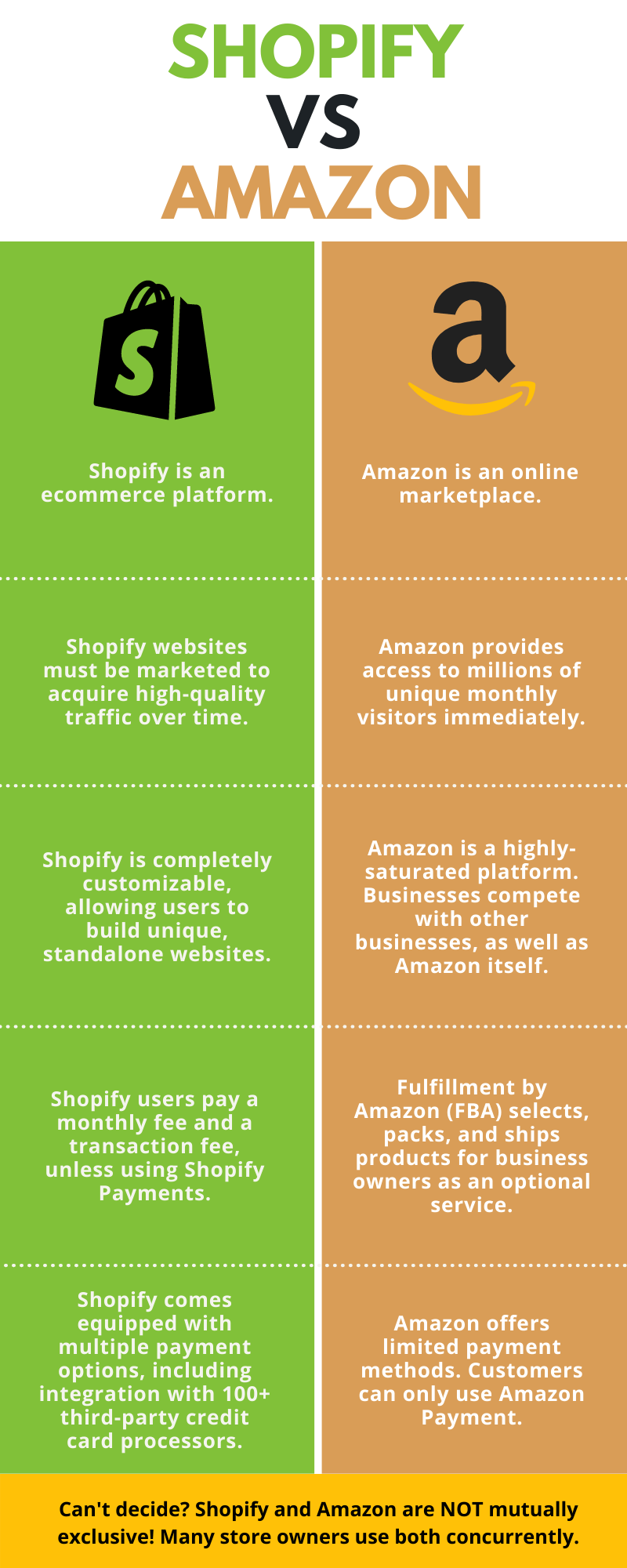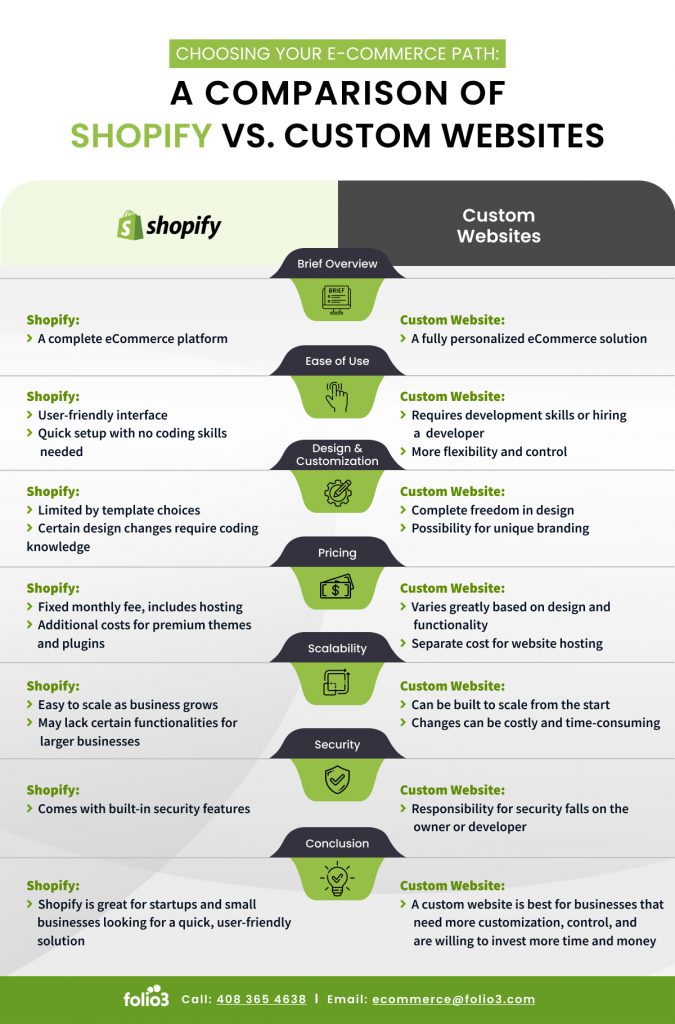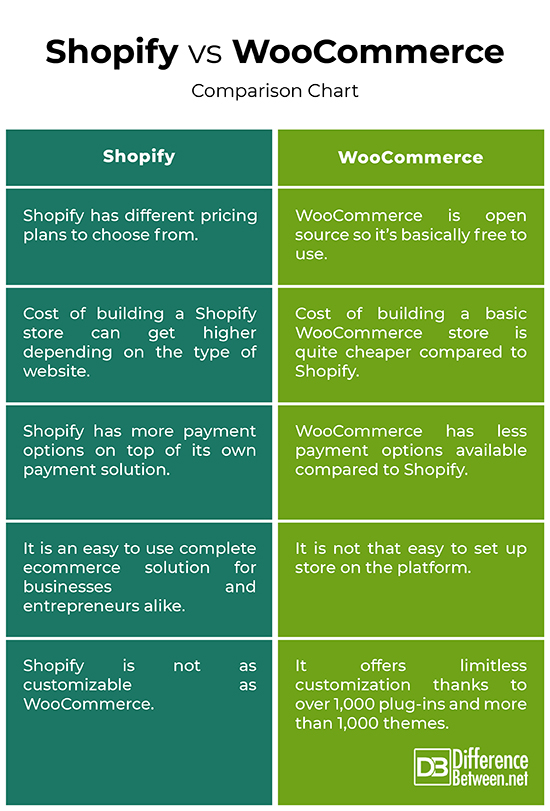Shopify is a popular e-commerce platform. E-commerce refers to online buying and selling.
Understanding the difference between Shopify and general e-commerce is important. Shopify offers tools to create and manage online stores. E-commerce is a broad term that includes all online business activities. This can involve using various platforms, including Shopify, Amazon, or custom websites.
Knowing these differences helps you choose the best path for your business. In this blog post, we’ll explore the key differences. This will help you decide which option suits your needs. Ready to dive in? Let’s get started!
Introduction To Shopify
Shopify is a popular platform for creating online stores. It simplifies the process of building and managing an e-commerce website. Many businesses use Shopify due to its ease of use and robust features.
Platform Overview
Shopify offers an all-in-one solution for e-commerce. It provides users with tools to design, customize, and run their online store. You don’t need technical skills to get started. Shopify hosts your website and ensures it runs smoothly.
Key Features
Shopify is packed with features that make e-commerce easy. Below are some of the key features:
- Customizable Templates: Choose from a range of professional templates to design your store.
- Secure Payment Gateways: Accept payments through various secure methods like credit cards and PayPal.
- Inventory Management: Track your stock levels and manage products effortlessly.
- SEO Tools: Built-in SEO features help improve your store’s visibility on search engines.
- Mobile Responsiveness: Ensure your store looks great on all devices, including smartphones and tablets.
- App Integration: Extend functionality by integrating with various apps available in the Shopify App Store.
These features make Shopify a powerful choice for any business looking to sell products online.
Introduction To E-commerce
E-commerce has changed the way we shop and do business. It allows anyone to sell products or services online. Whether you are a small business owner or a large enterprise, e-commerce offers endless possibilities. In this blog post, we will explore e-commerce in detail, its different types, and how it differs from platforms like Shopify.
Definition And Scope
E-commerce stands for electronic commerce. It involves buying and selling goods or services over the Internet. This can include various types of transactions, such as retail sales, auctions, and business-to-business exchanges. E-commerce has grown rapidly in recent years. It now covers a wide range of industries. Almost anything can be bought and sold online. This includes physical goods, digital products, and services.
Types Of Ecommerce Platforms
There are several types of E-commerce platforms. Each serves different needs and business models. Some common types include:
- Business-to-Consumer (B2C): This is the most common type. It involves transactions between businesses and individual customers. Examples include online retailers like Amazon.
- Business-to-Business (B2B): These platforms cater to transactions between businesses. They often deal with bulk orders and wholesale pricing. An example is Alibaba.
- Consumer-to-Consumer (C2C): This type involves transactions between consumers. Platforms like eBay and Craigslist facilitate these exchanges.
- Consumer-to-Business (C2B): Here, individuals sell products or services to businesses. Examples include freelance platforms like Upwork.
Each type of platform has unique features and caters to different audiences. Understanding these can help you choose the right one for your needs.
Shopify Vs E-commerce Platforms
Choosing between Shopify and other e-commerce platforms can be tricky. Both options offer different features. They suit different types of businesses. Let’s compare them in terms of ease of use and customization options.
Ease Of Use
Shopify is known for its user-friendly interface. Setting up a store is simple. No technical skills needed. You can choose a template and start adding products quickly.
Other e-commerce platforms may require more setup time. They often need some technical know-how. This can be a challenge for beginners. Some platforms may offer more control but at the cost of ease of use.
| Feature | Shopify | Other E-commerce Platforms |
|---|---|---|
| Setup Time | Quick | Varies |
| Technical Skills | Not Required | Often Required |
| User Interface | Simple | Can be Complex |
Customization Options
Shopify offers several templates. These templates are easy to customize. You can change colors, fonts, and layouts. Advanced customization is possible with coding. But basic changes are simple.
Other e-commerce platforms may offer more flexibility. They allow deep customization. This can include unique features and integrations. But it often needs more technical skills. And it can take more time.
- Shopify: Easy basic customization
- Other Platforms: More flexible, needs technical skills
Both options have their pros and cons. Choose based on your business needs. Consider your technical skills and customization requirements.
Pricing Comparison
Understanding the pricing structure of Shopify versus general e-commerce platforms is crucial for making an informed decision. This section will break down the various costs associated with each option, helping you determine which platform fits your budget and business needs.
Shopify Pricing Plans
Shopify offers a clear and tiered pricing model that is easy to understand. The main plans are:
- Basic Shopify: $29 per month. Ideal for new ecommerce businesses.
- Shopify: $79 per month. Suitable for growing businesses.
- Advanced Shopify: $299 per month. Best for scaling businesses with advanced needs.
Each plan includes a range of features like a website builder, SSL certificate, and 24/7 support. You can also take advantage of a 14-day free trial.
E-commerce Platform Costs
Costs for other e-commerce platforms vary widely. They depend on the features, customization, and support you need. Common costs include:
- Platform Fee: Varies from $0 to $500 per month.
- Hosting: $5 to $100 per month.
- SSL Certificate: $0 to $70 per year.
- Plugins and Add-ons: $0 to $200 per month.
These platforms might offer more flexibility but can lead to unpredictable costs. Ensure you budget for all potential expenses.
| Feature | Shopify | Other Platforms |
|---|---|---|
| Monthly Cost | $29 – $299 | $0 – $500+ |
| Hosting | Included | $5 – $100 |
| SSL Certificate | Included | $0 – $70 |
| Support | 24/7 | Varies |
Choosing between Shopify and other e-commerce platforms depends on your budget and specific needs. Consider all costs before making a decision.
Design And Themes
The design and themes of your online store play a crucial role. They help attract customers and provide a seamless shopping experience. Shopify and various e-commerce platforms offer different options for customization. Let’s explore the design and themes in both.
Shopify Templates
Shopify offers many templates for your online store. These templates are easy to use and customize. You can choose from free and paid options. Each template is mobile-friendly and optimized for speed. Shopify’s drag-and-drop editor makes design changes simple. No coding skills are needed.
Shopify templates cover many industries. They help you create a professional look quickly. You can also add apps and plugins for more features. This flexibility makes Shopify a popular choice for beginners.
E-commerce Platform Themes
E-commerce platforms also provide various themes. Each platform has its theme store or marketplace. These themes range from free to premium options. You can find themes for different business types and needs.
Some platforms offer more advanced customization. This can require some coding knowledge. These platforms may have more flexibility in design. You can change layouts, colors, and fonts easily. Third-party developers also create themes for these platforms.
Choosing the right theme depends on your business needs. Consider the level of customization you want. Also, think about your budget and design skills. Both Shopify and e-commerce platforms offer many choices.

Credit: www.rivalmind.com
Payment And Transaction Handling
Understanding payment and transaction handling is crucial for any e-commerce business. It directly impacts the user experience and can affect your conversion rates. Both Shopify and general e-commerce platforms offer different solutions for handling payments and transactions. Let’s dive into the specifics.
Shopify Payments
Shopify Payments is Shopify’s built-in payment gateway. It simplifies the process for store owners. With Shopify Payments, you don’t need to set up third-party payment providers or merchant accounts. You can start accepting payments right away.
Benefits of using Shopify Payments include:
- Seamless integration with your Shopify store.
- No transaction fees on orders processed through Shopify Payments.
- Multiple payment methods are supported, including credit cards and Apple Pay.
- Enhanced security features to protect customer data.
Shopify Payments also provides straightforward reporting. You can easily track payments, fees, and payouts from the Shopify dashboard.
Third-party Payment Gateways
For those not using Shopify or wanting more flexibility, third-party payment gateways are an option. These gateways offer a variety of payment methods and can be integrated into most e-commerce platforms.
Some popular third-party payment gateways include:
- PayPal
- Stripe
- Square
- Authorize.Net
Using a third-party gateway involves more setup compared to Shopify Payments. You’ll need to configure the gateway, set up a merchant account, and possibly pay transaction fees. Each gateway has its fee structure and terms.
Pros of third-party gateways:
- More payment options for customers.
- Potentially lower transaction fees with high volumes.
- Greater flexibility and customization.
Cons of third-party gateways:
- Additional setup time and complexity.
- Possible transaction fees on top of platform fees.
- Need to manage multiple accounts and dashboards.
Deciding between Shopify Payments and third-party gateways depends on your business needs. Consider ease of use, costs, and the payment options you want to offer.
Marketing And Seo Tools
Marketing and SEO tools are vital for any online store. They help attract and retain customers. Both Shopify and general eCommerce platforms offer a range of tools. These tools can make or break your online business. Below, we will explore the marketing features of Shopify and the SEO capabilities of general eCommerce platforms.
Shopify Marketing Features
Shopify offers a variety of marketing tools. These tools are built into the platform. Here are some key features:
- Email Marketing: Shopify has built-in email marketing tools. You can create, send, and track email campaigns.
- Social Media Integration: You can connect your store to social media platforms. This helps promote your products on Facebook, Instagram, and more.
- Discount Codes: Create and manage discount codes easily. This can help attract more customers.
- Analytics: Shopify provides detailed analytics. You can track your marketing efforts and make data-driven decisions.
E-commerce Seo Capabilities
SEO capabilities vary across different eCommerce platforms. Here are some common features:
- Customizable URLs: Many platforms let you create SEO-friendly URLs. This helps improve search engine rankings.
- Meta Tags: You can add custom meta tags to each page. This includes title tags, meta descriptions, and keywords.
- Image Optimization: Optimize images by adding alt text. This helps search engines understand what the image is about.
- Content Management: Platforms often include a CMS. This allows you to create and manage blog posts, which can boost SEO.
Below is a table summarizing the marketing and SEO features:
| Feature | Shopify | General eCommerce Platforms |
|---|---|---|
| Email Marketing | Built-in | Varies |
| Social Media Integration | Yes | Varies |
| Discount Codes | Yes | Varies |
| Analytics | Detailed | Varies |
| Customizable URLs | Limited | Yes |
| Meta Tags | Limited | Yes |
| Image Optimization | Yes | Yes |
| Content Management | Yes | Yes |
Customer Support And Resources
One key aspect that sets Shopify apart from other eCommerce platforms is its robust customer support and resources. Both Shopify and other eCommerce solutions offer varied forms of assistance. However, the quality and availability can differ significantly. This section will explore how Shopify and other eCommerce platforms stack up in terms of customer support and resources.
Shopify Support
Shopify offers comprehensive support to its users. The platform provides 24/7 customer service through various channels, including:
- Live Chat
- Phone
In addition to direct support, Shopify has an extensive help center filled with articles, guides, and tutorials. These resources are designed to help users solve common issues and learn how to use the platform effectively.
Shopify also boasts a vibrant community forum. Here, users can interact with fellow merchants, share experiences, and find solutions to problems. Shopify’s comprehensive support system ensures that help is always available, no matter the issue or time of day.
E-commerce Platform Assistance
Other eCommerce platforms also offer customer support, but the level and availability can vary. Many platforms provide:
- Email Support
- Knowledge Bases
- Community Forums
However, not all platforms offer 24/7 support. Some may have limited hours, which can be challenging if you encounter issues outside these times. The quality of support can also vary. Some users may find the assistance less responsive or helpful compared to Shopify’s support.
When considering an eCommerce platform, it’s essential to evaluate the customer support and resources available. Reliable support can make a significant difference in maintaining smooth operations.
| Feature | Shopify | Other E-commerce Platforms |
|---|---|---|
| 24/7 Support | Yes | Varies |
| Live Chat | Yes | Varies |
| Community Forum | Yes | Yes |
| Knowledge Base | Extensive | Varies |
Scalability And Growth
Scalability and growth are crucial for any business aiming to expand its reach and revenue. Choosing the right platform can significantly impact your business’s ability to grow. Shopify and various eCommerce platforms offer distinct scalability features. Understanding these differences can help you make an informed decision.
Shopify For Growing Businesses
Shopify is designed to support growing businesses. It offers various plans that can scale as your business grows. Starting with a basic plan, you can upgrade to advanced plans as you need more features.
- Basic Plan: Suitable for new stores.
- Shopify Plan: Ideal for growing businesses.
- Advanced Plan: Best for large-scale operations.
Each plan comes with more advanced features, allowing seamless upgrades. Shopify also offers robust support and a vast library of apps. This helps you add new functionalities as your business scales.
Shopify’s infrastructure handles high-traffic volumes efficiently. The platform ensures that your store remains fast and responsive. This is essential for maintaining customer satisfaction and conversion rates.
E-commerce Platform Scalability
Different eCommerce platforms have varied scalability features. Some platforms offer extensive customization options. This can be beneficial for businesses with unique needs.
Here is a comparison of popular eCommerce platforms:
| Platform | Scalability Features |
|---|---|
| Magento | Highly customizable, and suitable for large enterprises. |
| WooCommerce | Flexible, and works well with WordPress sites. |
| BigCommerce | Scalable solutions for growing businesses. |
Magento offers extensive customization but requires technical expertise. WooCommerce is flexible and integrates well with WordPress. BigCommerce offers scalable solutions with built-in tools for growth.
Each platform has its strengths and weaknesses. Assessing your business needs will help you choose the right one.

Credit: ecommerce.folio3.com
Frequently Asked Questions
What Is Shopify?
Shopify is an e-commerce platform that enables businesses to create online stores. It offers tools for product management, payment processing, and order tracking. Shopify provides customizable templates and a user-friendly interface.
What Is E-commerce?
E-commerce refers to buying and selling goods or services online. It encompasses various business models like B2B, B2C, and C2C. E-commerce platforms facilitate transactions, customer interactions, and digital marketing.
How Does Shopify Differ From E-commerce?
Shopify is a specific e-commerce platform, while e-commerce is a broad concept. Shopify offers tools for online store creation and management. E-commerce includes all online selling activities, not tied to a specific platform.
Is Shopify Good For Small Businesses?
Yes, Shopify is ideal for small businesses. It provides easy-to-use tools and affordable pricing plans. Shopify’s features help small businesses manage products, payments, and shipping efficiently.
Conclusion
Choosing between Shopify and general eCommerce depends on your needs. Shopify offers simplicity and support. Great for beginners. General eCommerce provides flexibility and control. Ideal for advanced users. Both have strengths. Consider your budget and technical skills. Think about your business goals too.
Research both options thoroughly. Choose the one that fits your requirements best. This will ensure a smooth online selling experience.

